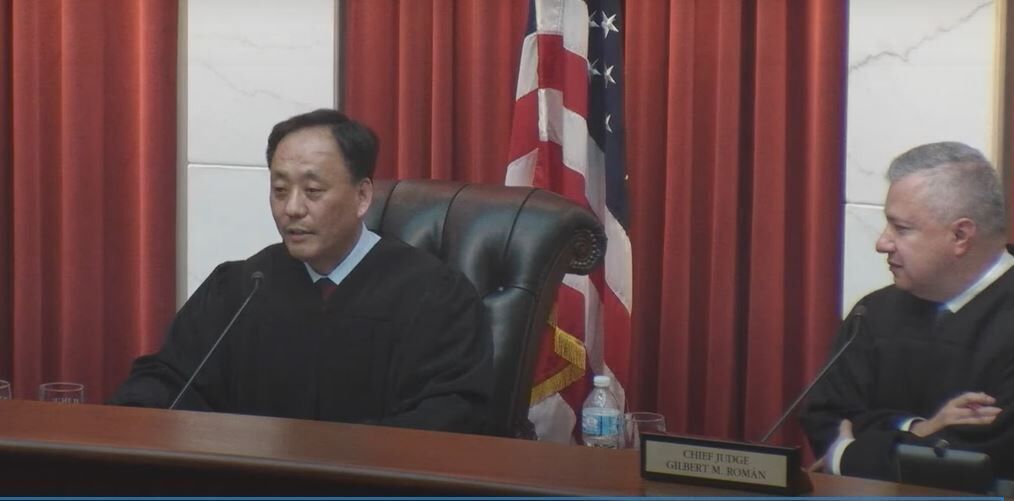Colorado Supreme Court to hear murder, noise pollution, fentanyl cases
The Colorado Supreme Court announced on Monday it will decide whether a man can be tried a second time for murder after jurors rendered a verdict that made no sense if they had followed their instructions.
At least three of the seven justices must agree to hear a case on appeal.
The court also elected to review the state’s noise pollution law to resolve competing interpretations that developed this year in the intermediate appeals court. Finally, the justices signaled they may intervene in an ongoing criminal prosecution that questions whether a victim’s suicidality should be a factor when considering a drug distributor’s liability for his death.
‘Cascade of errors’
Jacob Alexander Shockey was sentenced to 40 years in prison for second-degree murder. The victim died by gunshot wound and Arapahoe County prosecutors’ theory was that out of two suspects present, Shockey was the shooter.
However, at the same time jurors found Shockey caused the victim’s death, they concluded Shockey did not use a deadly weapon.
In December, a three-judge panel of the Court of Appeals agreed the contradictory verdict meant Shockey’s conviction could not stand, while parting ways about what should happen next.
The apparent problem stemmed from the prosecutor’s discussion during jury selection about “complicity” — a legal theory holding someone liable even if another person actually committed the crime. If jurors believed the second suspect was the shooter, deeming Shockey complicit would have harmonized the jury’s dual findings. But the trial judge never told jurors they could apply the theory to Shockey, meaning the jury disobeyed its instructions to find Shockey guilty.
“The prosecution’s entire theory of the case was that Shockey was the shooter and that he caused the victim’s death,” wrote Judge Rebecca R. Freyre for herself and Judge David H. Yun. “But by finding that the prosecution did not prove beyond a reasonable doubt that Shockey used, possessed, or threatened to use a deadly weapon, the jury inconsistently concluded that the prosecution had not proved that Shockey was the shooter.”
The majority believed putting Shockey through a second trial would violate the constitutional prohibition on double jeopardy, so they ordered his conviction vacated.

FILE PHOTO: Members of Colorado’s Court of Appeals gather at the ceremonial swearing-in of Judge Grant T. Sullivan.
Then-Judge David J. Richman agreed the “cascade of errors” surrounding the complicity theory was the problem. However, he concluded prosecutors should be allowed to retry Shockey.
The government appealed to the Supreme Court, arguing that even if Shockey had not shot the victim, he could still be prosecuted a second time.
“The majority’s opinion in this case permits a murderer to go free, without even the possibility of retrial, despite the jury’s unanimous finding of guilt,” argued Senior Assistant Attorney General Brock J. Swanson.
The Supreme Court will analyze whether the defense should have objected to the jury’s verdict immediately, whether the jury’s verdict amounted to an acquittal and whether double jeopardy prohibits a second trial.
The case is People v. Shockey.
Noise pollution
The state’s Noise Abatement Act sets decibel limits for classifications of property, which do not apply to the government, nonprofits, or “licensees” and “permittees” when holding concerts and music festivals. Recently, the Court of Appeals addressed whether that means local governments can permit private, for-profit establishments to exceed decibel limits on their own property, or whether it has to be property used by the government.
One Court of Appeals panel decided in March that localities do have such permitting power for private property. In that case, an attorney sued the city of Salida for authorizing a nearby bar and grill to hold summer concerts with noise levels exceeding the state caps.

Arkansas River Walk, downtown Salida.
By 2-1, the panel believed the law was intended to give local governments flexibility to regulate cultural and entertainment events, with objectors able to voice their concerns to city officials.
“The fact that such a remedy does not always lead to the particular result desired by a particular party does not mean that the statute, or the political process that it contemplates, is absurd,” wrote Judge Timothy J. Schutz for the majority.
Three months later, a different appellate panel concluded local governments cannot provide exemptions for land used exclusively by for-profit entities.
The plaintiff in the Salida case, Matthew K. Hobbs, appealed to the Supreme Court, with various parties in other pending noise-related challenges weighing in, too.
“At bottom, the majority decision will gut a statewide environmental statute that grants citizens a right to protect themselves from excessive noise,” wrote Hobbs’ attorneys. “Close review of the text, structure, and history of the Act makes clear the general assembly did not adopt statewide standards and create statutory rights and, at the same time, delegate them away.”
The Supreme Court will decide which interpretation of the Noise Abatement Act is correct.
The case is Hobbs v. City of Salida et al.

Judge Timothy J. Schutz speaks during his formal swearing-in ceremony to the Court of Appeals on Aug. 19, 2022. Behind him, from left to right, are Judges David Furman, W. Eric Kuhn, Craig R. Welling and Ted C. Tow III.
The intentional overdose
Patrick L. Beverly II stands accused of fentanyl distribution resulting in death in El Paso County. Prosecutors charged him under a 2022 law making distribution a class 1 drug felony if it is “the proximate cause” of someone’s death.
Prior to trial, the district attorney’s office sought to withhold a key detail from the jury: that the victim, Matthew Bowen, was likely suicidal at the time Beverly provided him with the synthetic opioid fentanyl. The county coroner noted other signs of Bowen’s suicidality and testified that Bowen’s levels of the powerful drug were “extraordinarily high.”
“I think the jury’s just going to get confused because it doesn’t matter if it’s a suicide,” Deputy District Attorney Lance Johnston said in August when arguing for the exclusion. “I don’t want the jurors to come across and say, ‘Well, he got exactly what he wanted. Why should we hold anyone responsible?'”
But that is the risk, countered District Court Judge Marcus Henson, of prosecuting distribution resulting in death, instead of just distribution.
“Because it almost begs the question: If there is the death, then the jury should have some opportunity to consider not only whether or not it was the defendant’s actions that maybe resulted in the death, but whether or not there’s something else contributing to the death,” he said.
Henson noted there were no prior cases that answered the question precisely, but he determined the jury should hear the evidence about Bowen’s suicidality when deciding if Beverly’s actions caused the death.
The district attorney’s office appealed immediately to the Supreme Court, arguing the victim’s intent in taking the drugs did not matter.
“Beverly is not a doctor or a pharmacist, and he did not dispense fentanyl to Bowen pursuant to a prescription. Regardless of what Bowen’s intent was when he ingested the drug, its dangerous nature is well documented, and it was foreseeable that Bowen could die from taking it,” wrote Senior Deputy District Attorney Doyle Baker.
The Supreme Court ordered Henson and the defense to respond to the prosecution’s petition.
The case is People v. Beverly.











